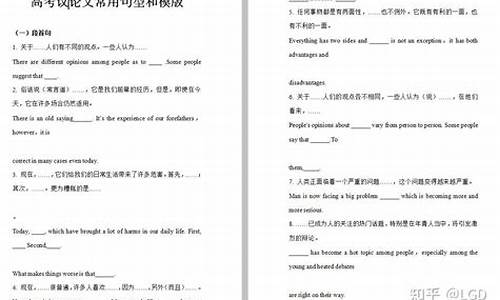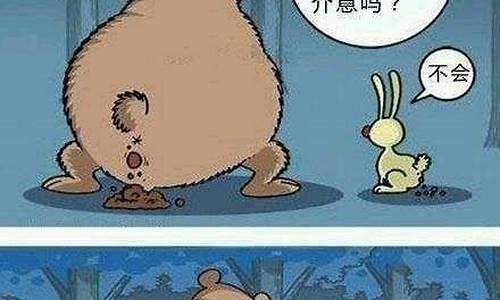英语句子怎么写完整三年级_英语句子怎么写完整三年级下册
1.小学三年级英语日记6个句子
2.三年级英语改句子15句
3.人教版三年级下册英语句子复习资料
4.120个一到四年级的英语句子
5.三年级英语连词成句
6.三年级英语上册第61页怎么写

三年级上册英语书第39页翻译句子
book
英 [bk] / n.书,书本
I he a book.(我有一本书。)
·ruler
英 [''ru:l(r)] / n.尺子
I he a ruler.(我有一把尺子。)
·pencil
英 [''pensl] / n.铅笔
I he a pencil.(我有一支铅笔。)
·schoolbag
英 [''sku:lbg] / n.书包
I he a schoolbag.(我有一个书包。)
·teacher
英 [''ti:t(r)] / n.教师
I''m a teache.(我是一名教师。)
·I
英 [a] / pron.我
I''m sorry.(我很抱歉。)
·he
英 [hv] / vt.有
They he a son.(他们有一个儿子。)
·an
英 [] / art.个
This is an orange.(这是一个橙子。)
·a
英 [] / art.一
I autographed a copy of one of my books.(我在自己的一本书上签了名。)
小学三年级英语日记6个句子
一.开头句型
1.As far as ...is concerned 就……而言 比如说:就我而言 As far as I concerned 2 It can be said with certainty that... +从句 可以肯定地说......
3.As the proverb says, 正如谚语所说的, 可以用来引用名言名句
4 .It has to be noticed that... 它必须注意到,...
5 .Its generally recognized that... 它普遍认为...
6 .Its likely that ... 这可能是因为...
7 .Its hardly that... 这是很难的......
8 Theres no denying the fact that...毫无疑问,无可否认
9 .Nothing is more important than the fact that... 没有什么比这更重要的是…
10 .whats far more important is that... 更重要的是…
二.衔接句型
1.A case in point is ... 一个典型的例子是...
3 But the problem is not so simple. Therefore,+句子 ( 然而问题并非如此简单,所以……) 4 .But its a pity that... 但遗憾的是… it’s a pity that….遗憾的是。。。
5 In spite of the fact that...尽管事实...... In spite of 尽管
6 .Further, we hold opinion that... 此外,我们坚持认为,...
7 .However , the difficulty lies in..+名词或者动名词 .然而,困难在于…
8.Similarly, we should pay attention to... 同样,我们要注意...
9 As it has been mentioned above...正如上面所提到的… (可以用来对前面所说的话进行补充说明)
10.In this respect, 从这个角度上
11.However, 然而…
三.结尾句型
1.I will conclude by saying... 最后我要说…
2.Therefore, we he the reason to believe that...因此,我们有理由相信…
3.All things considered,总而言之 = In a word=In conclusion
It may be safely said that...它可以有把握地说......
4.Therefore, in my opinion,因此,在我看来,
5.From what has been discussed above, we may safely draw the conclusion that….通过以上讨论,我们可以得出结论…
6.The data/statistics/figures lead us to the conclusion that….通过数据我们得到的结论是,....
7.It can be concluded from the discussion that...从中我们可以得出这样的结论
8.From my point of view, it would be better if...在我看来,如果……也许更好
四.举例句型
1. Here is one more example这里有不止一个的例子
2.Take … for example.就拿……为例子
五.常用于引言段的句型
1. Some people think that …. 有些人认为…
To be frank, I can not agree with their opinion for the reasons below. 坦率地说,我不能同意他们的意见,理由如下。
2. I believe the title statement is valid because…. 我认为这个论点是正确的,因为… 1
3. I cannot entirely agree with the idea that ….我无法完全同意….这一观点的说法…
4. Along with the development of…, more and more….随着……的发展,越来越多…
5 It is commonly/generally/widely/ believed /held/accepted/recognized that….它通常是认为…
6. As far as I am concerned, I completely agree with the former/ the latter.就我而言,我完全同意前者/后者的观点。
六 表示比较和对比的常用句型和表达法
1. A is completely different from B. (A和B完全不同)
2 The difference between A and B is lies in +名词或者动名词 ( A和B不同的地方是。。。) .
七 演绎法常用的句型
1. There are several reasons for…, but in general, they come down to three major ones.有几个原因……,但一般,他们可以归结为三个主要的。
2. Many ways can contribute to solving this problem, but the following ones may be most effective.有很多方法可以解决这个问题,但下面的可能是最有效的。 ( 可以用在保护环境等话题的作文)
4. Generally, the advantages can be listed as follows.一般来说,这些优势可以列举如下。
5. The reasons are as follows. 。。。的理由如下 (可以用来列举理由原因)
八 因果推理法常用句型
1.Because/Since we read the book, we he learned a lot. 由于阅读这本书,我们已经学到了很多。
2. If we read the book, we would learn a lot. 由于阅读这本书,我们已经学到了很多。
3. We read the book; as a result / therefore / thus / hence / consequently / for this reason / because of this, weve learned a lot. 由于阅读这本书,我们已经学到了很多。
4. As a result of /Because of/Due to/Owing to reading the book, weve learned a lot. 由于阅读这本书,我们已经学到了很多。
更多内容推荐
1.英语六级作文万能模板句子
2.英语四级作文结尾万能句型
3.中考英语万能金句精选
4.英语六级作文万能模板
5.高考英语必备万能句型
6.英语四级作文万能模板
7.高考英语作文万能金句
8.中考英语作文万能句型
9.高考英语作文万能模板
10.四级作文万能模板完整版
韩芳沫
回复 2 楼 2014-12-19
(一)段首句
1. 关于……人们有不同的观点。一些人认为…… There are different opinions among people as to ____ .Some people suggest that ____.
2. 俗话说(常言道)……,它是我们前辈的经历,但是,即使在今天,它在许多场合仍然适用。 There is an old saying______. It’s the experience of our forefathers,however,it is correct in many cases even today.
3. 现在,……,它们给我们的日常生活带来了许多危害。首先,……;其次,……。更为糟糕的是……。 Today, ____, which he brought a lot of harms in our daily life. First, ____ Second,____. What makes things worse is that______.
4. 现在,……很普遍,许多人喜欢……,因为……,另外(而且)……。 Nowadays,it is common to ______. Many people like ______ because ______. Besides,______.
5. 任何事物都是有两面性,……也不例外。它既有有利的一面,也有不利的一面。 Everything has two sides and ______ is not an exception,it has both advantages and disadvantages.
6. 关于……人们的观点各不相同,一些人认为(说)……,在他们看来,…… People’s opinions about ______ vary from person to person. Some people say that ______.To them,_____.
7. 人类正面临着一个严重的问题……,这个问题变得越来越严重。 Man is now facing a big problem ______ which is becoming more and more serious.
8. ……已成为人的关注的热门话题,特别是在年青人当中,将引发激烈的辩论。 ______ has become a hot topic among people,especially among the young and heated debates are right on their way.
9. ……在我们的日常生活中起着越来越重要的作用,它给我们带来了许多好处,但同时也引发一些严重的问题。 ______ has been playing an increasingly important role in our day-to-day life. it has brought us a lot of benefits but has created some serious problems as well.
10. 根据图表/数字/统计数字/表格中的百分比/图表/条形图/成形图可以看出……。很显然……,但是为什么呢? According to the figure/number/statistics/percentages in the /chart/bar graph/line/graph,it can be seen that______ while. Obviously,______,but why?
(二)中间段落句
1. 相反,有一些人赞成……,他们相信……,而且,他们认为……。 On the contrary,there are some people in for of ___.At the same time,they say____.
2. 但是,我认为这不是解决……的好方法,比如……。最糟糕的是……。 But I don’t think it is a very good way to solve ____.For example,____.Worst of all,___.
3. ……对我们国家的发展和建设是必不可少的,(也是)非常重要的。首先,……。而且……,最重要的是…… ______is necessary and important to our country’s development and construction. First,______.What’s more, _____.Most important of all,______.
4. 有几个可供我们纳的方法。首先,我们可以……。 There are several measures for us to adopt. First, we can______
5. 面临……,我们应该取一系列行之有效的方法来……。一方面……,另一方面, Confronted with______,we should take a series of effective measures to______. For one thing,______For another,______
6. 早就应该拿出行动了。比如说……,另外……。所有这些方法肯定会……。 It is high time that something was done about it. For example. _____.In addition. _____.All these measures will certainly______.
7. 为什么……?第一个原因是……;第二个原因是……;第三个原因是……。总的来说,……的主要原因是由于…… Why______? The first reason is that ______.The second reason is ______.The third is ______.For all this, the main cause of ______due to ______.
8. 然而,正如任何事物都有好坏两个方面一样,……也有它的不利的一面,象……。 However, just like everything has both its good and bad sides, ______also has its own disadvantages, such as ______.
9. 尽管如此,我相信……更有利。 Nonetheless, I believe that ______is more advantageous.
10. 完全同意……这种观点(陈述),主要理由如下: I fully agree with the statement that ______ because______.
(三)结尾句
1. 至于我,在某种程度上我同意后面的观点,我认为…… As far as I am concerned, I agree with the latter opinion to some extent. I think that ____.
2. 总而言之,整个社会应该密切关注……这个问题。只有这样,我们才能在将来……。 In a word, the whole society should pay close attention to the problem of ______.Only in this way can ______in the future.
3. 但是,……和……都有它们各自的优势(好处)。例如,……,而……。然而,把这两者相比较,我更倾向于(喜欢)…… But ______and ______he their own advantages. For example, _____, while_____. Comparing this with that, however, I prefer to______.
4. 就我个人而言,我相信……,因此,我坚信美好的未来正等着我们。因为…… Personally,
I believe that_____. Consequently, I’m confident that a bright future is awaiting us because______.
5. 随着社会的发展,……。因此,迫切需要……。如果每个人都愿为社会贡献自已的一份力量,这个社会将要变得越来越好。 With the development of society, ______.So it’s urgent and necessary to ____.If every member is willing to contribute himself to the society, it will be better and better.
6. 至于我(对我来说,就我而言),我认为……更合理。只有这样,我们才能…… For my part, I think it reasonable to_____. Only in this way can you _____.
7. 对我来说,我认为有必要……。原因如下:第一,……; 第二,……;最后……但同样重要的是…… In my opinion, I think it necessary to____. The reasons are as follows. First _____.Second ______. Last but not least,______.
8. 在总体上很难说……是好还是坏,因为它在很大程度上取决于……的形势。然而,就我个人而言,我发现……。 It is difficult to say whether _____is good or not in general as it depends very much on the situation of______. However, from a personal point of view find______.
9. 综上所述,我们可以清楚地得出结论…… From what has been discussed above, we may reasonably arrive at the conclusion that____.
三年级英语改句子15句
Today, it is a fine day ! I took my schoolbag and went to school hily. On my way to school I saw a poor blind man was going to cross the road ,so I came up him and helped him to cross the road .After that ,he spoak highly of me by saying I was a good girl. To my surprise,my neighbor knew this and told it to my parents,they all prouded of me . How a nice day !!
人教版三年级下册英语句子复习资料
1. Where are you from? I’m from America. 2. Good morning! Good afternoon! 3. Class, we he a new friend today. 4. Who’s that woman? She’s my mother。 5. Who’s that man? He’s my father. 6. Who’s this boy?My brother. 7. I he a new kite.Oh, it’s beautiful. 8. How many kites can you see? I can see 12. 9. The black one is a bird. Oh, how nice! 10. How many crayons do you he? I he 16 crayons. 11. Open it and see. That’s right. 12. Do you like peaches?Yes, I do. /No, I don’t. 13. What about pears? Oh, I like them very much. 14. Let’s he some peaches and pears. 15. He some fruits.Thank you, Miss White.
120个一到四年级的英语句子
句子是英语学习中的重点难点,那么三年级的同学应该如何在考试前夕复习好句子部分呢?下面是由我整理的人教版三年级下册英语句子复习资料,一起来看看吧。
人教版三年级下册英语句子复习资料第一部分Unit 1
--1.show me your pen. 让我看看你的钢笔。
2.open your pencil--box. 打开你的铅笔盒。
3. close your book .关上你的书。
4. carry your bag. 背起你的书包。
Unit 2.
1.Show me green. 给我看看绿色。
2.Show me red. 给我看看红色。
3.Show me blue. 给我看看红色。
4.Show me yellow. 给我看看**。
5. Black, black. Stand up. 黑色,黑色,站起来(起立)!
6. Orange, orange. Sit down. 橙色,橙色。坐下。
7. White, white. Touch the ground. 白色,白色,摸摸地。
8. Brown, brown.Turn around. 棕色,棕色,转个圈。
5.I see green. 我看见绿色。
Unit 3.
1. Close your eyes. 闭上你的眼睛。
2. Open your mouth. 张开你的嘴巴。 3.Touch your nose. 摸摸你的鼻子。
4. Touch your ear. 摸摸你的耳朵。 5.Touch your face. 摸摸你的脸 6.Look at me. 看我。
7.This is my face, 这是我的脸。 8. Clap your hands. 拍拍你的手。 9.Touch your head.摸摸你的头 。
10.We your arms. 挥挥你的胳膊。
11.Shake your legs. 摇摇你的腿。
12.Shake your body. 摇摇你的身体。 13. Stamp your foot. 跺跺你的脚。
人教版三年级下册英语句子复习资料第二部分Unit 4.
1.Act like an elephant. 像大象一样表演。(扮演一只大象。)
2.Act like a bird. 扮演一只鸟。
3.Act like a tiger. 像老虎一样表演。
4.Act like a monkey.扮演一只猴子。 5.Act like a panda.扮演一只熊猫。
Unit5.
1. He some eggs. 吃一些蛋。
2.He some juice. 喝一些果汁。 3.Eat some bread. 吃一些面包。
4.Drink some milk. 喝一些牛奶。 5. Drink some water. 喝一些水。
6.Eat some fish. 吃一些鱼。 7. Eat some rice. 吃一些米饭
8.Cut the cake. 切蛋糕。
Unit6
Show me six. 给我看看6.
2.Show me seven.给我看看7
3.Show me eight. 给我看看8
4.Show me nine. 给我看看9
5.Show me ten. 给我看看10
三年级英语连词成句
一年级
(1) Good morning. Good morning.
(2) Hello, Tony. Hi, Smith.
(3) Hello, How are you?
Fine, thank you. And you?
I am fine too .
(4) Goodbye, Tony. Goodbye, Smith.
(
(1) Hello, I am Dan. Hi, my name is Pat.
(2) What’s your name? My name is Pat.
(3) Nice to meet you. Nice to meet you too.
(4) Nice to see you, Nice to see you too.
(5) Are you Tony? Yes, I am. No, I am not.
5) Here’s a balloon. Thank you.
(1) It is a computer. It isn’t a chair.
(2) What’s this? It’s a desk.
(3) Is it a book? Yes, it is. No, it isn’t.
(4) this is a nice fan. This isn’t a computer.
(5) is this a desk? Yes, it is. No, it isn’t.
(1) Is it a bag? Yes, It is. No, It isn’t.
(2) This is my bag. This is’t my bag.
(3) Is this your rubber? Yes, it is. No, it is’t.
(4) Is this a ruler? No, It is a pencil case.
(1) Point to the board. Point to ……
(2) Look at the door. Look at ……
(3) Sit down, please. Stand up, please.
(4) Close your books. Open your mouth.
(1) Look at me.(your fingers, ^)
(2) close your eyes (mouth, )
(3) open your mouth. (eyes)
(4) you win. I win.
(1) This is a lychee. That is an le.
(2) An orange, please. Here you are.
(3) What’s this, Mum? It’s an lel.
(4) What’s that, Dad? It’s an orange.
(5) Here you are. Thank you.
(1) This is an le. It is red.
(2) This is a lychee. It isn’t brown.
(3) What colour is it? It is yellow and blue.
(4) What colour is it? It is yellow too.
(5) Is it grey? Yes, it is . No, it isn’t.
(6) Here you are. Thank you very much.
二年级
1 it has ears and small eyes
2 look at the fat hens
3 what do you see in the picture?
4 the big carrots are white
三年级
Nice to meet you!
Nice to meet you, too!
Hello!
Hello!
How are you?
I am fine, thanks.
What is your\his\her name?
My\his\her name is jenny.
What colour is it?
It is red.
What is your fourite colour?
my fourite colour is blue.
Where is my book?
There it is!
How many pens do you he?
Four.
Hou do you feel?
I am hy!
What is this?
It is a book.
What is the matter?
I cut my knee.
What are they doing?
They are playing.
Hou old are you?
I am ten years old.
May I he two books, please?
Sure!
四年级
1、This is my computer. 这是我的电脑。
2、That is your computer.那是你的电脑。
3、Is this a teacher’s desk? 这是一张讲台吗? Yes, it is.是的,它是。
4、What time is it? 现在几点? It’s two o’clock.. 两点钟。
5、It’s 9:45. It’s time for math class.该上数学课了。
6、Is this your T-shirt? 这是你的 衫吗? No, it’s not.不,它不是。
7、What colour is it? 它是什么颜色的? It’s white.它是白色的。
8、It’s warm today. 今天是暖和的。
9、Let’s play football. 让我们踢足球吧。
10、It’s cool. 天气是凉爽的。
11、Is it cold?天气是寒冷的吗?
12、How much is it? 它是多少元? It’s ten yuan.它是10元。
13、How much are they?它们是多少元? They’re three yuan.它们是三元。
14、Are they ducks? 它们是鸭子吗? No, they aren’t.不,它们不是。
15、How many horses are there? 有多少匹马? Twelve. 12匹。
五年级
1、Who’s your English teacher? 谁是你的英语老师? Mr Carter.卡特先生。
2、What’s he like? 他是什么样子? He’s tall and strong.他又高又强壮。
3、Is she quite?她是文静的吗? No, she isn’t.不,她不是。
4、She’s very active.她是活跃的。
5、Is she strict?她是严肃的吗?
6、Yes, she is, but she’s very kind. 是的,她是。但是她非常亲切的。
7、What day is it today? 今天星期几? It’s Wednesday.今天星期二。
8、What do you he on Thursday? 在星期四,你们上什么课?
9、We he English, math and science on Thursdays.
我们在星期四上英语,数学和科学。
10、What do you do on Saturdays? 在星期六你做什么?
11、I watch TV on Saturdays. 我在星期六看电视。
12、What do you he for lunch on Mondays? 在星期一你们吃什么?
13、We he tomatoes, tofu and fish. 我们吃西红柿,豆腐和鱼。
14、What’s your fourite fruit? 你最喜欢的水果是什么?
15、I like les. 我喜欢苹果。 They’re sweet. 它们是甜的。
16、I like fruit. 我喜欢水果。 But I don’t like grapes. 但我不喜欢葡萄。
17、They’re sour.它们是酸的
18、What can you do? 你能做什么? I can sweep the floor. 我会扫地。
19、I can cook the meals. 我会煮饭。 I can water the flowers.我会浇花。
20、Can you make the bed? 你会整理床铺吗? No, I can’t. 不,我不会。
21、Can you use a computer? 你会使用电脑吗? Yes, I can. 是的,我会。
22、There are two bedrooms, a kitchen, a bathroom and a living room.
有两间卧室,一间厨房和一间起居室。
23、There is a mirror, a bed and a big closet.有一面镜子,一张床和一个大衣橱。
24、The closet is near the table. 这个衣橱在桌子旁边。
25、Many clothes are in the closet. 很多衣服在衣橱里。
26、The trash bin is behind the door.这个垃圾筒是在门的后面。
27、Is there a forest in the park? 在公园里是有一个森林吗?Yes, there is.是的,有。
28、Is there a river? 有一条小河吗? No, there isn’t. 不,没有。
29、When do you eat dinner? 你什么时候吃晚饭?
30、I eat dinner at 7:00 in the evening.我在晚上7:00吃晚饭。
31、When do you get up? 你什么时候起床?
32、I usually get up at 12:00 at noon.我通常在中午12:00起床。
33、What do you do on the weekend? 在周末你干什么?
34、Usually I watch TV and go shopping.我通常看电视和购物。
35、Sometimes I visit my grandparents.有时侯我去看望外祖父母。
36、What about you?那你呢?
37、I often play football. 我经常踢足球。
38、Sometimes I go hiking. 有时侯我去远足。
39、Which season do you like best? 你最喜欢什么季节?
40、I like winter best.我最喜欢冬天。
41、Summer is good, but fall is my fourite season.
夏天是好的,但秋天是我最喜欢的季节。
42、Why do you like summer? 你为什么喜欢夏天?
43、Because I can swim in the lake.因为我可以在湖里游泳。
44、Why do you like winter? 你为什么喜欢冬天?
45、Because I can sleep a long time.因为我可以睡很长时间。
46、When is your birthday? 你的生日是什么时候? It’s in May. 它在5月。
47、My birthday is in June. 我的生日是在六月。
48、Uncle Bill’s birthday is in June, too.比尔叔叔的生日也在六月。
49、Is her birthday in June? 她的生日是在六月吗? Yes. 是的。
50、What’s the date? 是什么日期? June 9th .六月九日。
51、Hi, John. This is Zhang Peng. 你好,约翰。我是张朋。
52、What are you doing? 你正在干什么? I’m doing the dishes. 我正在洗碗碟。
53、I’m reading a book.我正在读书。
54、Grandpa is writing a letter. 外祖父正在写信。
55、Brother is doing homework. 弟弟正在做作业。
56、Mom is cooking dinner in the kitchen. 妈妈正在厨房做晚饭。
57、He’s writing an e-mail in the study.他正在书房写邮件。
58、What is it doing? 它正在干什么? It’s eating bananas. 它正在吃香蕉。
59、What is she doing? 她正在做什么? She’s jumping. 她正在跳。
60、What are they doing? 他们正在干什么? They’re swimming.他们正在游泳。
61、They’re climbing trees.它们正在爬树。
62、Are you eating lunch? 你们正在吃午饭吗? No, we aren’t. 不,我们不是。
63、Are they eating the honey? 它们正在吃蜂蜜吗 Yes, they are. 是的,它们是。
64、Is he playing chess? 他正在下棋吗? Yes, he is. 是,他是。
65、Is she counting insects? 她正在数昆虫吗? No, she isn’t.不,她不是。
六年级
1、How do you go to school, Sarah? 你怎样上学,拉萨?
2、Usually I go to school on foot. 我通常步行上学。
3、Sometimes I go by bike.有时侯我骑自行车。
4、How can I get to Zhongshan Park? 我怎样到达中山公园?
5、You can go by the No.15 bus. 你可以乘15路公共汽车。
6、Where is the cinema, please? 请问,**院在哪里?
7、It’s next to the hospital.它与医院相邻。
8、Turn left at the cinema, 在**院转左。then go straight. 然后一直走。
9、It’s on the left.它在左边。
10、What are you going to do on the weekend? 在周末,你打算干什么?
11、I’m going to visit my grandparents this weekend.
这个周末,我打算看望外祖父母。
12、Where are you going this afternoon? 今天下午,你打算去哪里?
13、I’m going to the bookstore.我打算去书店。
14、What are you going to buy? 你打算去买什么?
15、I am going to buy a comic book.我打算去买一本书。
16、What’s your hobby? 什么是你的爱好? I like collecting stamps. 我喜欢集邮。
17、He likes collecting stamps, too.他也喜欢集邮。
18、Does she teach English? 她教英语吗? No, she doesn’t. 不,她不是。
19、Does she teach you math? 她教英语吗? Yes, she does. 是,她是。
20、What does your mother do? 你的妈妈是干什么的?
21、She is a TV reporter.她是一个电视台记者。
22、Where does she work?她在哪里工作?
23、She works in a school.她在学校工作。
24、How does she go to work? 她怎样去工作?
25、She goes to work by bus.她乘公共汽车去工作。
26、Where does the rain come from? 雨来自哪里?
27、It comes from the clouds.它来自云。
28、How do you do that?你怎样做?
29、What should you do then?然后你打算做什么?
30、How tall are you?你多高? I’m 164 cm tall. 我164厘米高。
31、You’re shorter than me. 你比我矮。
31、You’re 4 cm taller than me.你比我高4厘米。
33、How hey are you? 你多重? I’m 48 kg. 我是48公斤。
34、I’m thinner and shorter than you 我比你瘦,比你矮。
35、What’s the matter? 你有什么事情? My throat is sore. 我的喉咙疼。
36、My nose hurts. 我的鼻子疼痛。
37、How are you, Liu Yun?刘允,你怎样? You look so hy. 你看上去很高兴。
38、How are you, Sarah? 拉萨,你怎样?
39、You look sad today.今天,你看上去很悲伤。
40、What did you do last weekend? 上周末,你干什么了?
41、I played football.我去踢足球。
42、Did you read books? 你读书了吗?Yes, I did. / No, I didn’t.
43、Where did you go on your holiday? 在你的期,你去了哪里?
44、I went to Xinjiang.我去了新疆。
45、How did you go there? 你怎样去哪里? I went by train.我乘火车去。
三年级英语上册第61页怎么写
三年级英语连词成句:首先要看清标点符号,如果是句号,则是陈述语句;还要注意句式如果是问号,则是疑问语句。就要先看是特殊疑问句还是由be动词或情态动词引导的。
如果要求连陈述句,可以用以下方法:
1、陈述句的基本结构就是主语+谓语+宾语而构成的。所以,首先找到人称代词或者指示代词等,或者名词,把这些词放在句首。
2、第二部分要找到动词,这些动词一般是:Be(am,is,are),或实意动词后。
3、时间地点居最后,地点在前,时间在后。
如果是问句,可以用以下方法:
先看是特殊疑问句还是由be动词或情态动词引导的疑问句。
1、如果有where、what、how等疑问词,那么它就是特殊疑问句,就要把疑问词where、what、how等放在一句话的最前面,它后面紧接的是be动词也就是学习过的am、is、are。
2、如果题目中有can、may、shall、would等情态动词,那么它就是由情态动词引导的疑问句。那么就要把情态动词放在句子的最前面,后面紧接的就是这句话的主语(主语往往是人或者物)。
3、如果题目中没有任何的特殊疑问词,也没有任何情态动词,那么就是最最熟悉的一般疑问句了。一般疑问句的基本准则就是疑问词是be动词(am、is、are),而且要把它们放在句子的最前面,紧接其后的是主语,其他成分也就容易补上去了。
连词成句答题步骤:
1、先明白每一个单词的意思,再组合成一句话。
2、要注意英语句子和汉语句子的语序有时是不同的。
3、注意组合成的句子单词数量不能多也不能少。有时粗心,会多出一个或少一个单词。
4、抄写时要特别注意不以抄错单词。
5、特别注意使用标点符号要正确。
6、句子开头的首字母一定要大写。
1、句子第一个单词首字母大写。2、单词单词之间空开-一个字母a大小距离。3、注意每个字母的书写格式,每个字母和抄写字母时候一样要求规范,占据四线三格的适当位置。4、注意标点,逗号后面空开一一个字母的距离,句尾要有标点,句号为一个实心原点。5、如果是两个句子连写的,句子与句子之间空开两个字母a的距离。
声明:本站所有文章资源内容,如无特殊说明或标注,均为采集网络资源。如若本站内容侵犯了原著者的合法权益,可联系本站删除。












